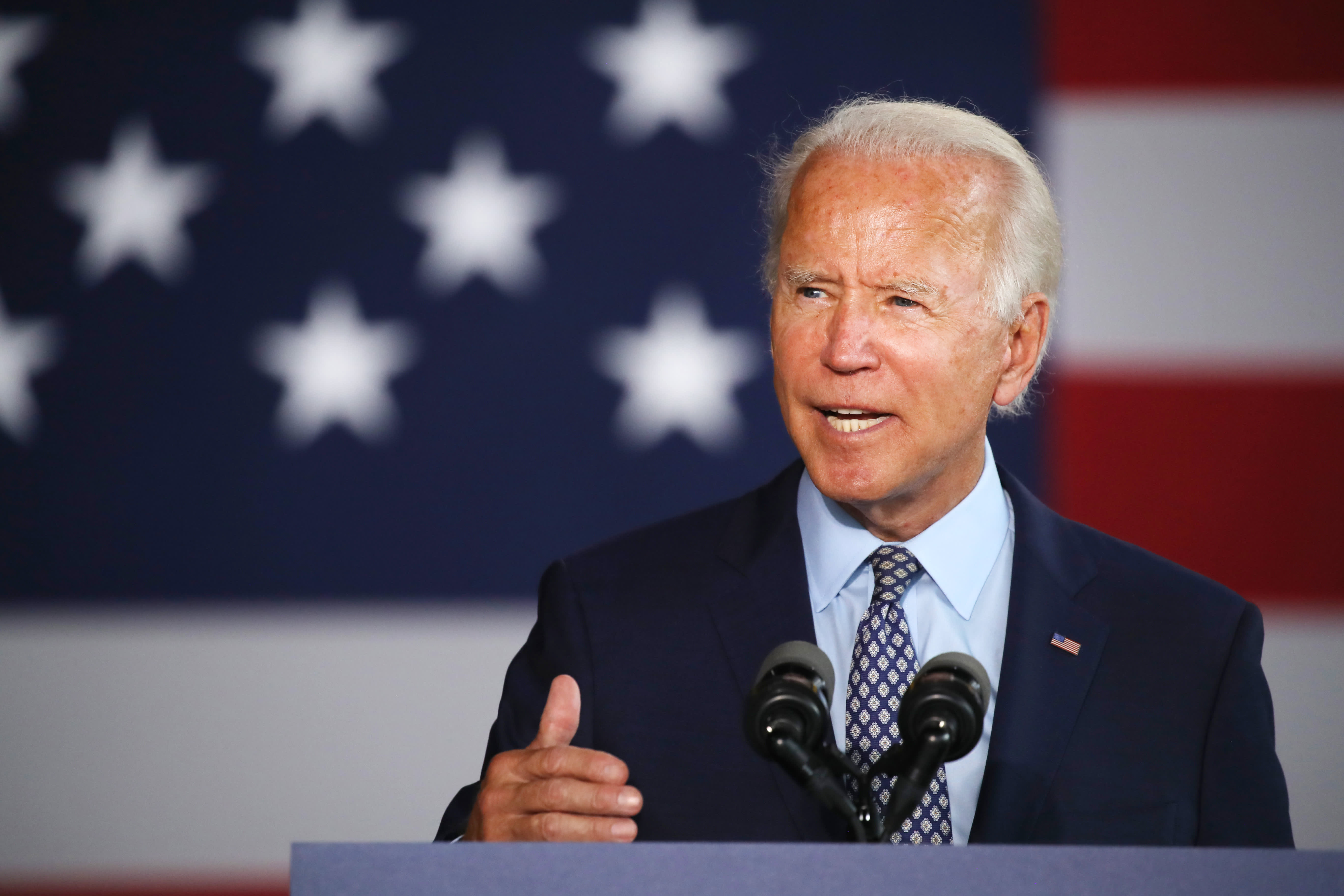The presumptive Democratic presidential nominee Joe Biden speaks at McGregor Industries on July 09, 2020 in Dunmore, Pennsylvania.
Spencer Platt | Getty Images
WASHINGTON — Democratic presidential nominee Joe Biden will travel to the battleground state of Michigan on Wednesday to propose changes to the corporate tax code that reward investments in U.S.-based manufacturing, and impose new penalties on American companies that offshore jobs.
The tax plan is part of a broader push by the former vice president to forcefully challenge President Donald Trump on economic issues in the final two months of the presidential race.
The Biden offshoring tax proposal has three chief components:
- An offshoring tax penalty: This part calls for a 28% corporate tax rate and an additional 10% “offshoring penalty surtax” on profits for manufactured goods and for services such as call centers, if American companies produce them overseas and then sell them back to the U.S. market. According to a briefing paper from the Biden campaign, ”companies will pay a 30.8% tax rate on any such profits.”
- A “Made in America” tax credit: A 10% advanceable tax credit for companies on a broad range of investments designed to create manufacturing jobs in the U.S. Projects that are eligible for the tax credit include revitalizing closed or closing factories, increasing domestic production, modernizing manufacturing facilities, expanding manufacturing payrolls and any expense or investment related to onshoring jobs.
- Elimination of offshore tax loopholes: Biden’s plan would close several tax loopholes in the 2017 Republican tax bill that currently permit U.S. companies to shield their foreign profits from full taxation.
Trump’s pledge to halt offshoring and bring jobs back to the U.S. proved to be one of his most effective campaign messages in 2016, helping him to win manufacturing-heavy blue states like Michigan and Pennsylvania.
On Wednesday, Biden will appear in Macomb County, which Trump won in 2016, to argue that the president has broken his promise to revitalize manufacturing there. Biden will present his own plan as the best way to accomplish what Trump could not.
In addition to proposing changes to the offshore tax code, Biden will also pledge that if he is elected president, he will sign six “Buy American” executive orders during his first week in office.
The executive orders would tighten the current “Buy American” rules that govern federal procurement to even more strongly favor American-made goods and services than they do now. Biden initially proposed the changes to “Buy American” rules in early July, when he first unveiled his economic platform.
In the two months since then, Biden has maintained his lead over Trump in both national and swing-state polls, with a majority of voters in these states saying they believe Biden would handle race relations, the coronavirus pandemic and national security better than Trump.
But with less than 60 days left in the presidential campaign, there remains one issue on which Trump consistently leads his opponent: Who voters trust most to handle the economy.
In Michigan, Biden leads Trump statewide by 5 points, according to a WDIV/Detroit News poll released Tuesday. But Trump has a 4-point advantage over Biden on the economy.
Several nationwide polls in the past week have shown Biden closing in on Trump’s economic advantage, however, giving the Biden campaign reason to believe the timing is ideal for an aggressive economic push in states Trump won last time.
Returning jobs to the U.S. is one of several promises Trump made during his first campaign that has proven much more difficult to accomplish than Trump and his closest advisers had anticipated.
This is partly due to the president’s tendency to launch initiatives with fanfare, only to set them aside soon after and focus on something else.
For example, Trump signed his own “Buy American” executive order in April 2017, just weeks after his inauguration. The order required federal agencies to gather information about procurement practices and then submit reports to the White House.
Three years later, however, there do not appear to have been any reports submitted, according to The Los Angeles Times, which recently examined Trump’s record on “Buy American.”
Trump, meanwhile, is trying to make many of the same arguments about Biden.
Speaking at a campaign rally Tuesday night in North Carolina, Trump claimed, “For half a century, Joe Biden shook hands with blue-collar workers and then he turned around and immediately stabbed them in the back” with multinational trade deals, Trump said. “He closed the factories in Baltimore and sent them to Beijing. They were all sent to Beijing.”
